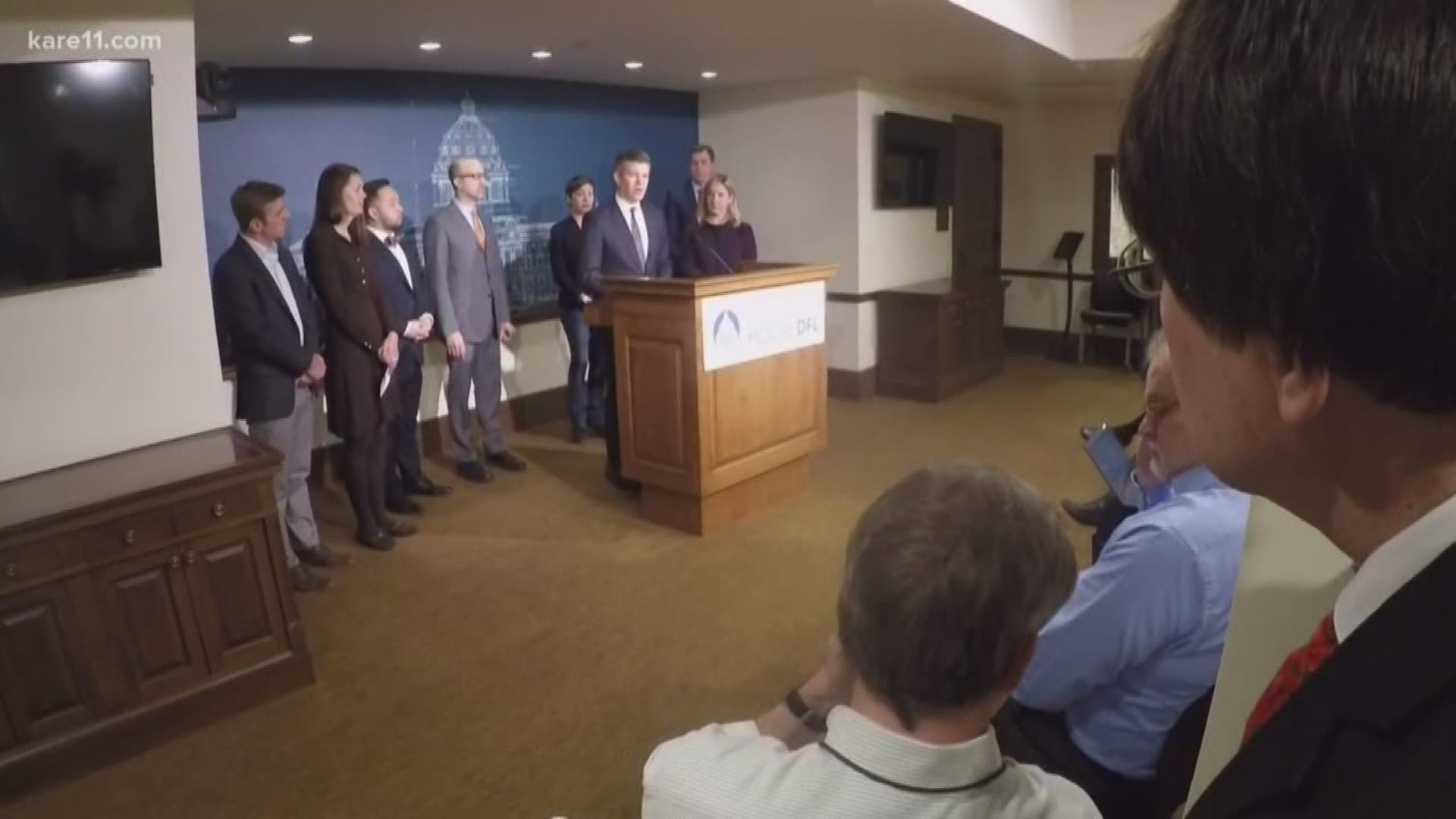ST PAUL, Minn. — Lawmakers won't have to worry about solving a deficit as they head into the 2020 Session, but they will have some serious differences of opinion on how to handle the states extra cash.
The DFL House Majority Thursday released their wish list for the coming session, including spending $500,000,000 of the state's projected budget surplus on early childhood education efforts.
House Speaker Melissa Hortman acknowledged that one-time spending isn't an ideal solution but said there's no appetite with the Republican-controlled Senate or DFL Governor Tim Walz to increase education spending in a non-budget year.
"We think the most important thing is to get kids off to the right start," Rep. Hortman told reporters.
"Even though we can’t make a commitment to fund these early child scholarships for the next three years it doesn’t mean we should let this year’s three-year-olds go without an opportunity if we have the money sitting there."
This year's version of House File 1 envisions $190 million for early learning scholarships, $60 million to continue voluntary Pre-K programs that will otherwise lose funding and $190 million for the Child Care Assistance Program, known as C-CAP.
"People can’t afford to pay for childcare," House Majority Leader Ryan Winkler remarked.
"And we are creating a system that is fencing people out of the workplace, fencing kids out of success and we need to change that direction."
The legislature passed a two-year budget last year and is looking at a projected $1.3 billion surplus for the fiscal cycle that ends June 30, 2021. That's based on the November revenue forecast for the remainder of the biennium and assumes no new spending initiatives.
Senate Republicans have already said they'd like to use part of the surplus to pay for tax relief, specifically to make all Social Security income exempt from state taxes. Senate Majority Leader Paul Gazelka asserts that it will make Minnesota more attractive to retirees and seniors who are still working.
Gov. Walz, however, said it amounts to a tax cut for higher income seniors, arguing that 70% of Social Security income is already tax-exempt in Minnesota's tax codes.
The House Democrats' session priorities list also includes:
- Affordable Emergency Insulin
- Paid medical leave and earned sick and safe time
- Universal background checks for gun purchases
- Red Flag protection orders for gun owners
- Public works construction bonding bill
House and Senate negotiators have worked during the interim, in an effort to fashion an affordable insulin program. Senate Republicans have been unwilling to accept the House DFL proposal to charge a fee to drug makers to cover part of the cost of an insulin program.
Sen. Gazelka, the Senate Republican leader, said the House contingent should be willing to accept the Senate's latest offer because it gives them most of what they've sought and more than the GOP negotiators initially offered.
"I often say if we can get 70%, take the 70%," Sen, Gazelka explained.
"We shouldn’t be afraid to take steps towards the goal we’re trying to make, that’s why it’s frustrating to me because we genuinely wanted to get this done."
Democrats have said there are Republicans in the Senate willing to go along with charging a fee to pharmaceutical companies, and that Gazelka should allow them to vote on the House's version of the insulin bill.
Sen. Gazelka has also opposed universal background checks and the extreme risk "red flags" protection orders, which would allow police to ask the courts for permission to temporarily remove a firearm from someone who is dangerous to themselves or others.
Gazelka said Minnesota already has some of the strictest gun laws in the nation. He acknowledged there are Minnesotans who want more protections from gun violence.
"Do it understanding what’s already on the books now, and recognizing people want to feel safe. And whatever we can do to that actually works, we should be open to doing."
The Senate, by contrast, has entertained legislation that would allow eligible gun owners to carry handguns and other firearms without a permit. They're also interested in a bill that would extend the castle doctrine, legalizing what has become known as the "stand your ground" defense.


